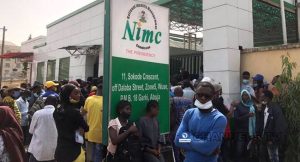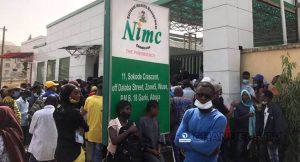NIN Enrolment Reaches 110 Million – NIMC DG

The National Identity Management Commission (NIMC) has announced that the number of Nigerians with National Identification Numbers (NIN) has reached 110 million.
Naija News reports that this marks a 2.39 percent increase from the 107.34 million recorded in May 2024.
The Director-General of NIMC, Abisoye Coker-Odusote, revealed this milestone during the ongoing National Day of Identity event in Abuja, themed “Digital Public Infrastructure: Enabling Access to Services.”
Coker-Odusote credited the achievement to the strategic plan executed by the current NIMC leadership, emphasizing that digital public infrastructure (DPI) is now vital for Nigeria’s economic progress.
The NIMC DG said, “The role of DPI has become indispensable to Nigeria’s economic development, as it offers a framework that connects citizens to essential services such as social welfare, healthcare, education, and financial inclusion. At the forefront of this transformation is NIMC, responsible for the National Identification Number, which has enrolled over 110 million Nigerians.
“This provides a unique opportunity for the other two pillars of the DPI – data exchange and payment – to be layered on foundational identity for its effective development and adoption.”
The NIMC DG highlighted that this digital framework has facilitated government and financial institutions in areas like digital payments, identity verification, and financial inclusion.
She also noted the success of the Student Loan Initiative, which has registered 332,715 students and made payments to over 18,000 students across 257 institutions, showcasing DPI’s role in breaking down financial barriers to education.
“I must say we are on the right path and key strides have been made through collaboration and partnerships with government agencies and private sector players linking of NINs and phone numbers with the telecommunication companies, NIN and Bank Verification Number harmonisation with financial institutions to facilitate digital payments, digital money, digital identity and digital processes, amongst others.
“Furthermore, the Student Loan Initiative showcases how DPI can eliminate financial barriers to education. By collaborating with 257 institutions, 332,715 students have been registered for loans, and over 18,000 students have already received payments through the initiative,” Coker-Odusote added.
The post NIN Enrolment Reaches 110 Million – NIMC DG appeared first on Naija News.
